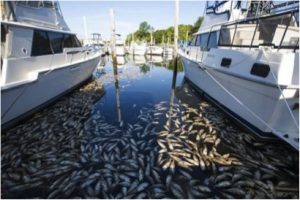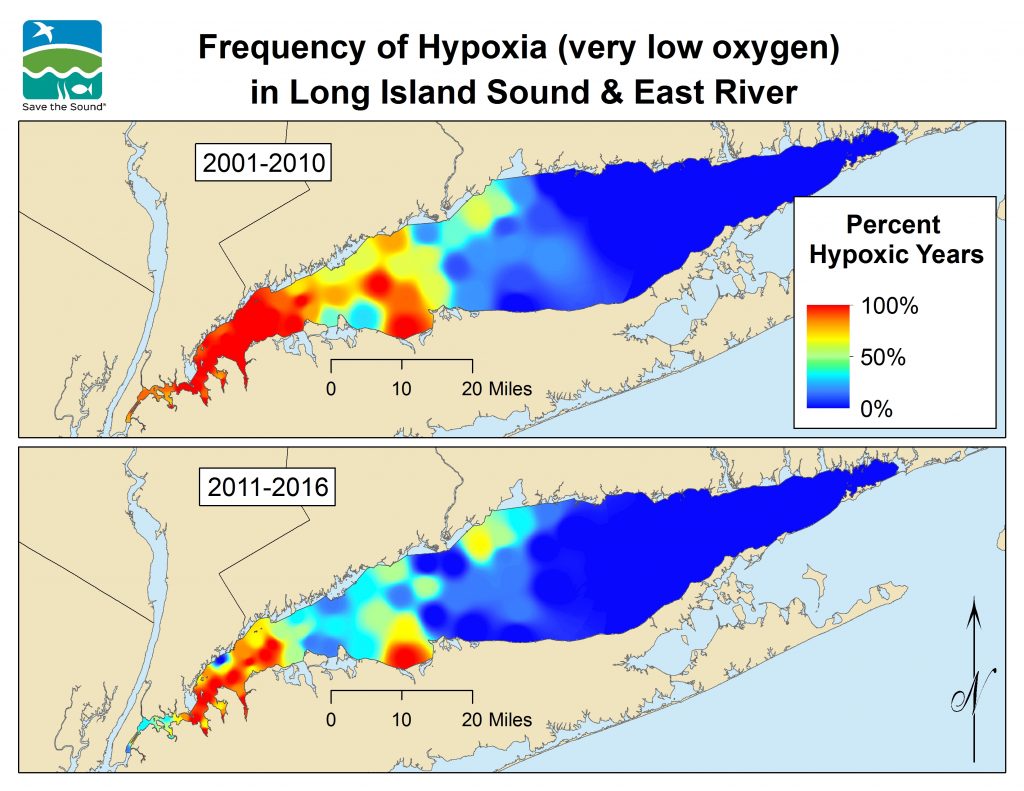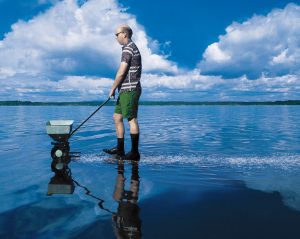 Nitrogen: Sound Enemy #1
Nitrogen: Sound Enemy #1
The primary pollutant and threat to Long Island Sound is too much nitrogen entering the water from wastewater treatment plants, septic systems, fossil fuel burning, and fertilizer use.
Excess nitrogen robs Long Island Sound of oxygen. Without enough oxygen, fish, lobsters, crabs, and other aquatic animals struggle to breathe. High nitrogen levels also lead to harmful algae blooms, fish die-offs, and loss of the coastal marshes that protect communities from flooding and provide important wildlife habitat.
Nitrogen and Hypoxia
Every summer for decades, parts of Long Island Sound has suffered from episodes of very low oxygen (hypoxia). Recent reductions in the amount of nitrogen being discharged from wastewater treatment plants around the Sound appear to be having the desired effect—shrinking these areas of hypoxia. But excess nitrogen is still a serious problem and a major focus of our advocacy efforts on behalf of a healthy Sound.

What We’re Doing to Reduce Nitrogen
Our multi-pronged campaign to bring about nitrogen reductions uses all our tools including science, advocacy and education, on-the-ground green infrastructure projects, legal action, and community organizing.
Learn more from our reports and studies:
- Ecosystem Health: the Long Island Sound Report Card
- NYC Nitrogen’s Impact on Sound Health
- The Sound’s Bays and Harbors
- Nitrogen pollution on our blog
What You Can Do
You can reduce the nitrogen harming your waters:

- Reduce water usage: Less water means improved water treatment at plants, plus less wear and tear on pipes.
- Eliminate or reduce fertilizer use: Prevents nutrient runoff from polluting your waterways.
- Plant shoreline buffers: Natural vegetation and forested buffers (not a grassy lawn) along a stream, ditch, or waterfront help filter pollutants.
- Update your septic system: New septic technology now treats nitrogen as well as bacteria.
- Use green infrastructure: Techniques like rain gardens and permeable pavement help naturally reduce runoff by capturing, filtering, and absorbing stormwater.
